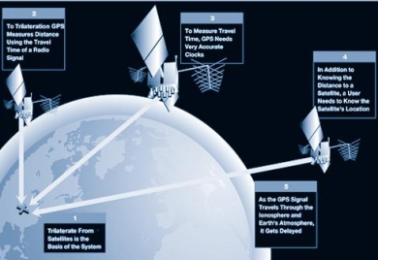Society may already be dangerously over-reliant on satellite radio navigation systems like GPS, the Royal Academy of Engineering warns. The range of applications using the technology is now so broad that, without adequate independent backup, signal failure or interference could potentially affect safety systems and other critical parts of the economy.
Global Navigation Space Systems: reliance and vulnerabilities looks into the increasing use of global navigation satellite systems (GNSS) to gain accurate data for positioning, navigation and timing (PNT). The US-operated Global Positioning System (GPS) is best known as the first major implementation of this technology but other GNSS systems are being planned and built, including the Russian GLONASS and Europe's Galileo.
The Academy's report focuses on the increasing reliance on GNSS and the current limited use of GNSS-independent backups for PNT data. The vulnerabilities of GNSS to deliberate or accidental interference, both man-made (such as jamming) and natural (such as solar flares) are also highlighted.
GNSS dependency is now widespread across the UK. As well as the ubiquitous satnav, the signals are used by data networks, financial systems, shipping and air transport, agriculture, railways and emergency services. The European Commission, in its mid-term review of the European satellite radio navigation programmes estimated that an €800 billion chunk of the European economy is already dependent on GNSS. All GNSS applications are vulnerable to failure, disruption and interference and the report looks at a range of possible consequences of these, from the inconvenient (such as passenger information system failures) to possible loss of life (such as interruptions to emergency services communications). Finally, the Academy advises the creation of an R&D programme focused on antenna and receiver improvements that would enhance the resilience of GNSS dependent systems against natural and man-made threats.

